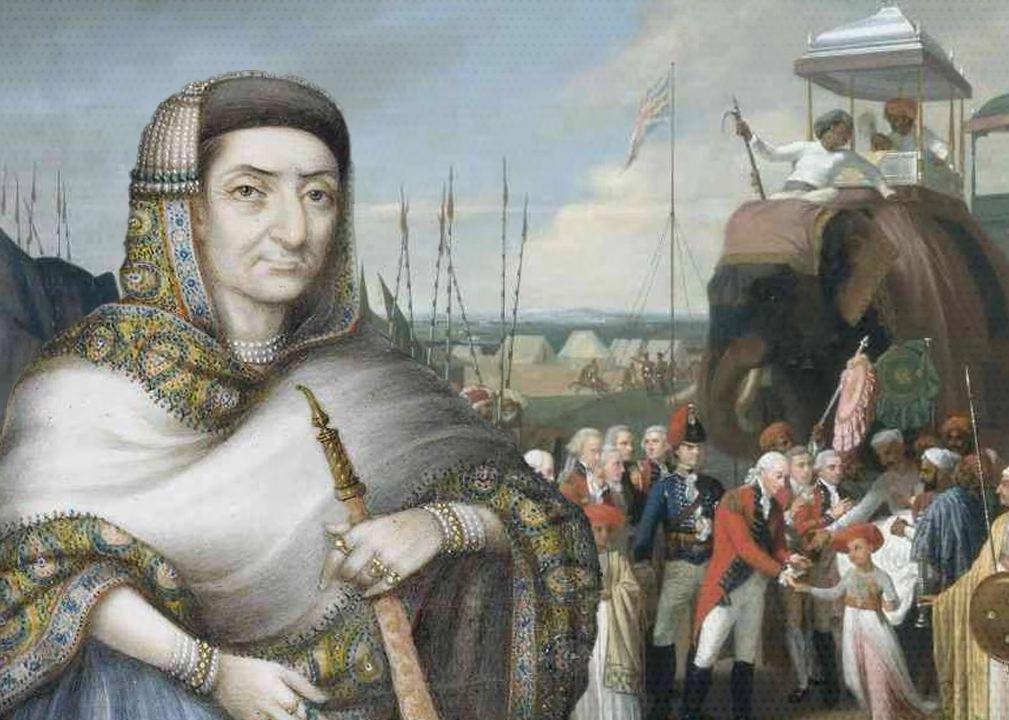
Women Entrepreneurs in Indian History: Begum Samru & Jibhabu
In a society where women’s roles were often limited to domestic duties, two remarkable women defied conventions to carve out their own paths as entrepreneurs in Indian history. Begum Samru, who ruled a 621-square km estate in Sardhana through diplomacy, and Jibhabu of Gujarat, who restored her family’s land revenue business by negotiating with the East India Company, showcased unparalleled financial expertise and strategic leadership. Their stories serve as a testament to the power of women in business and the impact they can have on society.
Begum Samru: The Diplomatic Ruler of Sardhana
Born as Imhoff, Begum Samru was a German woman who later converted to Islam and married General Walter Reinhardt Sombre, a French mercenary. After her husband’s death, she inherited his estate in Sardhana, which was then a strategic location for the British East India Company. Despite being a foreigner in a foreign land, Begum Samru used her wit and diplomacy to maintain control over the estate and engage with the British.
Throughout her rule, Begum Samru demonstrated remarkable entrepreneurial skills, diversifying her estate’s income streams through agriculture, trade, and real estate. She also built roads, bridges, and canals, thereby improving the infrastructure of Sardhana. Her diplomatic efforts ensured the loyalty of her subjects, who remained devoted to her despite being under British influence.
Jibhabu: The Negotiator Who Saved Her Family’s Business
Jibhabu was a Gujarati woman who belonged to a family with a long history of trading and revenue collection. When the East India Company began to assert its control over Gujarat, Jibhabu’s family faced significant challenges in maintaining their business. Recognizing the importance of adapting to the changing circumstances, Jibhabu took the reins of her family’s business and negotiated with the East India Company to secure a favorable agreement.
Jibhabu’s negotiations were marked by her exceptional business acumen and strategic thinking. She successfully argued that her family’s business had been in operation for centuries and that the East India Company would benefit from maintaining a mutually beneficial partnership. Her efforts culminated in the signing of a treaty that allowed her family to continue their revenue collection business, albeit under the supervision of the East India Company.
The Legacy of Begum Samru and Jibhabu
The stories of Begum Samru and Jibhabu serve as a testament to the power of women in business and their ability to defy societal norms. In a time when women’s roles were limited, these two women demonstrated exceptional financial expertise and strategic leadership, leaving lasting legacies in Indian history.
Begum Samru’s diplomatic efforts and entrepreneurial skills enabled her to maintain control over her estate and engage with the British, demonstrating the impact that a strong and strategic leader can have on a community. Her legacy extends beyond Sardhana, as her story has inspired generations of women to pursue careers in business and leadership.
Jibhabu’s negotiation skills and business acumen saved her family’s business and ensured their continued participation in the revenue collection process. Her story highlights the importance of adaptability and strategic thinking in the face of change, demonstrating that even in challenging circumstances, women can leverage their skills to achieve success.
Conclusion
The stories of Begum Samru and Jibhabu offer a fascinating glimpse into the lives of women entrepreneurs in Indian history. Their achievements serve as a reminder of the significant contributions that women can make to society, even in the face of adversity and societal norms. As we continue to celebrate International Women’s Day and the achievements of women around the world, we would do well to remember the pioneering efforts of these two remarkable women who defied conventions to pursue their passions and leave lasting legacies in Indian history.
Source: https://ascendants.in/business-stories/pioneering-women-entrepreneurs-history/






